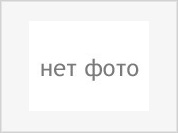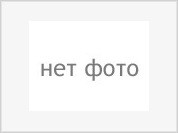Russia's WTO membership to kill domestic industry?
Last week, the ministerial conference of the WTO approved Russia's membership in the organization. On Russia's behalf, the document was signed by Minister for Economic Development, Elvira Nabiullina. WTO's head Pascal Lamy presented the Russian minister with a "Russian Federation" sign, which marked the completion of the negotiation process.
Russia's membership in the WTO will give the organization an opportunity to control over 97 percent of global trade. "The world economy has been having hard times recently. This is the period, when risks for the growth of protectionism are especially high. Joining the WTO, we are ready to actively withstand such risks. For us, the completion of the negotiations is not a finish, it is a start," Elvira Nabiullina said.
Indeed, the Russian Federation will have 200 days to ratify the joining agreement and conduct all necessary corrections of the national legislation in the State Duma. Afterwards, the president will be able to sign the agreement within a month, and the Russian Federation will become a full-fledged member of the WTO. This will happen in July 2012.
Old-time champions of Russia's WTO membership support the completion of the talks. Former Finance Minister Aleksei Kudrin believes that Russia would have a growth of the GDP.
"The WTO membership will give Russia an additional 3-4 percent of the GDP growth in ten years. This will be approximately 0.4 percent a year. This is a serious addition," RIA Novosti quoted Kudrin as saying.
"We will be able to produce more; there will be more jobs and investments too. We will be able to trade on other markets more actively," Kudrin added.
However, experts do not see a place for Russian products on foreign markets. An exception can be made for raw materials. Fuel, metallurgist and chemical companies will be able to receive nearly $2 billion of extra profit a year as a result of the reduction of protective duties.
"Specific industries of the production sector will win. It goes about petrochemistry and ferrous metallurgy in the first place. As for the sectors of light industry, which is weak in Russia already, the country's membership in the WTO will make matters even worse. Competition will grow stronger. The outdated capacities of many enterprises and their dependence on loans will not be a competition," analysts with Fibo Group told Bigness.ru.
The Russian Federation in its turns undertakes to cut the duties on certain kinds of consumer goods for the population. It particularly goes about imported cars and medications. By 2017, Russia will have to cut import duties on cars from 30 to 15 percent. The reduction will save over $1.5 billion for consumers.
Imports of medicines will also become 5-10 percent cheaper. They take 77 percent of the market.
"Some changes will take place in the banking sector as well. There are just a few large foreign banks operating in the Russian Federation right now. The conditions for their work in Russia will become a lot more convenient with the WTO membership. Medium-seized banks will have to either unite into alliances or offer more interesting services to clients. As a result, clients will see lower interest rates and new deposit offers," analysts said.
Pork and poultry may also become cheaper. Russian cattle breeding and meat processing enterprises plan to organize a foreign expansion since the partners will have to open their own markets.
At any rate, Russia's WTO membership is a prospective step, analysts believe. Prices are expected to go down, the range is to expand. However, it will most likely be the expansion of the range of imported products.
Boris Yaremenko.
Subscribe to Pravda.Ru Telegram channel, Facebook, RSS!





